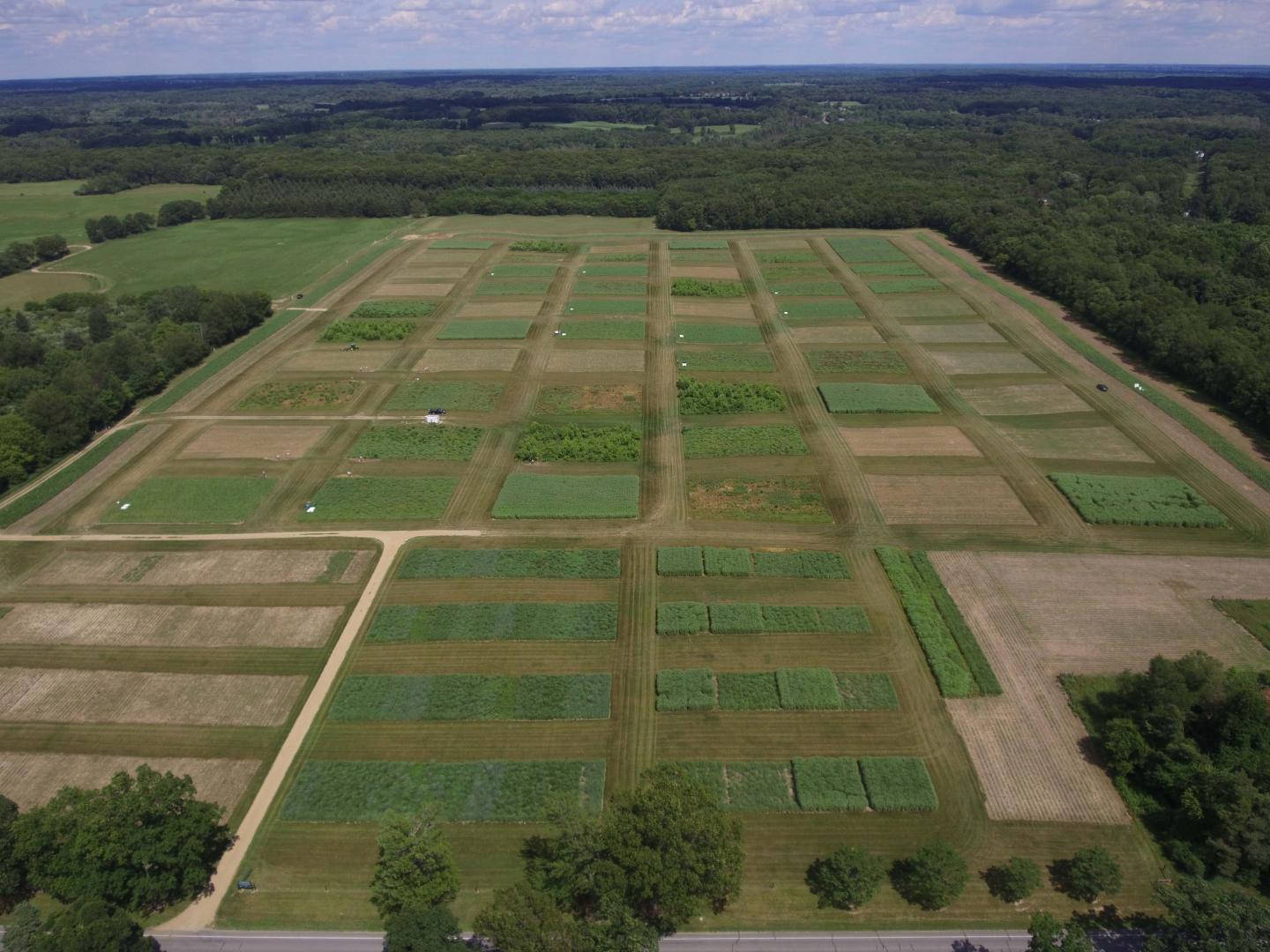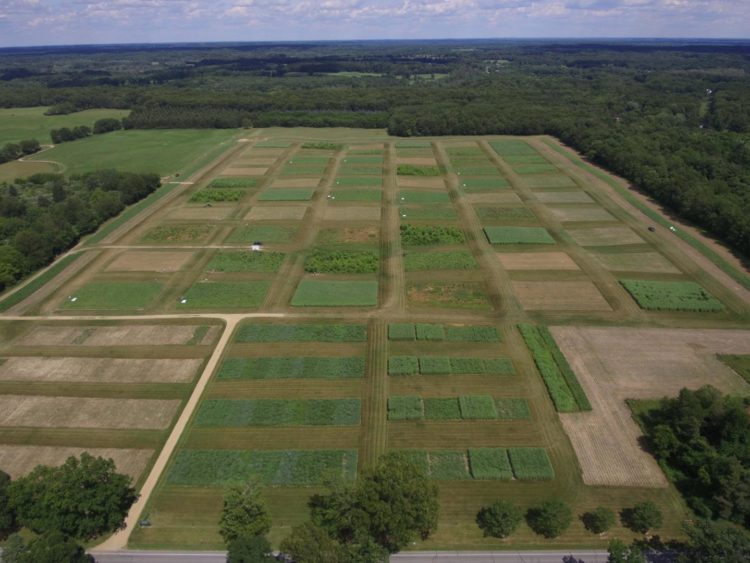
Credit: Photo credit: Ryan Mater
BEER-SHEVA, ISRAEL…March 10, 2020 – Biomass fuels derived from various grasses could significantly mitigate global warming by reducing carbon, according to a long-term field study by researchers at Ben-Gurion University of the Negev (BGU) and Michigan State University (MSU).
In a new paper published in Environmental Science and Technology, the researchers examined a number of different cellulosic biofuel crops to test their potential as a petroleum alternative in ethanol fuel and electric light-duty vehicles which includes passenger cars and small trucks.
Climate change mitigation scenarios limiting global temperature increases to 1.5 °C rely on decarbonizing vehicle fuel with bioenergy production together with carbon capture and storage (BECCS). Carbon Capture and Storage (CCS) is a technology that can capture up to 90% of the carbon dioxide (CO2) emitted during electricity generation and industrial processes, which prevents atmospheric increase of CO2 concentration. Using both CCS and renewable biomass is one of the few carbon abatement technolo¬gies resulting in a ‘carbon-negative’ mode ¬- actually removing carbon dioxide from the atmosphere.
This research, for the first time, evaluates bioenergy feedstocks grown side-by-side. The seven crops included, switchgrass, giant miscanthus, poplar trees, maize residuals, restored native prairie, and a combination of grasses and vegetation that grows spontaneously following field abandonment.
“Every crop we tested had a very significant mitigation capacity despite being grown on very different soils and under natural climate variability,” says Dr. Ilya Gelfand, of the BGU French Associates Institute for Agriculture and Biotechnology of Drylands, The Jacob Blaustein Institutes for Desert Research. “These crops could provide a very significant portion of the decarbonization of U.S. light-duty vehicle transport to curb CO2 emissions and slow global warming.” Decarbonization of transportation is critical to limit rising temperatures.”
In the study, when compared with petroleum only emissions, ethanol with bioenergy was 78-290% better in reducing carbon emissions; ethanol was 204-416% improved, biomass powered electric vehicles powered by biomass was 74-303% cleaner and biomass-powered electric vehicles combined with CSS was 329-558% superior.
The study was conducted at Michigan State University’s (MSU) Kellogg Biological Station and the University of Wisconsin’s Arlington Research Station which is part of the U.S. Department of Energy’s Great Lakes Bioenergy Research Center. Interestingly, the crops grown at MSU did as well as those grown at the more fertile Wisconsin site.
“This is significant because it means that we’re likely to be able to produce these crops on marginal lands and still get high productivity,” says Prof. Phil Robertson of MSU, senior author of the study. “Long-term field experiments that include weather extremes such as drought, and actual rather than estimated greenhouse gas emissions, are crucial for stress-testing models assumptions.”
The next phase of research is to assess other environmental and economic aspects of bioenergy crops. The best biofuel crops need to be economically attractive to farmers, don’t add more nitrogen or pesticides to the environment and are conservation friendly.
###
Financial support for this work was provided by the U.S. Department of Energy Office of Science (DE-FC02-07ER64494, DE-SC0018409) and Office of Energy Efficiency and Renewable Energy (DE-AC05-76RL01830), the U.S. National Science Foundation LTER program (DEB 1832042), and Michigan State University AgBioResearch.
American Associates, Ben-Gurion University of the Negev
American Associates, Ben-Gurion University of the Negev (AABGU) plays a vital role in sustaining David Ben-Gurion’s vision: creating a world-class institution of education and research in the Israeli desert, nurturing the Negev community and sharing the University’s expertise locally and around the globe. As Ben-Gurion University of the Negev (BGU) turns 50 this year, AABGU imagines a future that goes beyond the walls of academia. It is a future where BGU invents a new world and inspires a vision for a stronger Israel and its next generation of leaders. Together with supporters, AABGU will help the University foster excellence in teaching, research and outreach to the communities of the Negev for the next 50 years and beyond. Visit vision.aabgu.org to learn more. AABGU, headquartered in Manhattan, has nine regional offices throughout the United States. For more information visit http://www.
Media Contact
Andrew Lavin
[email protected]
516-353-2505
Related Journal Article
http://dx.





